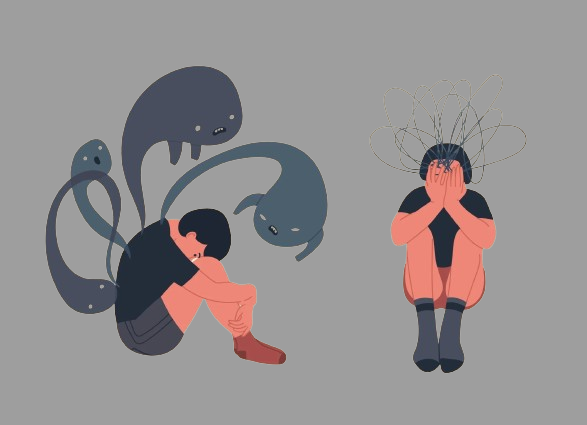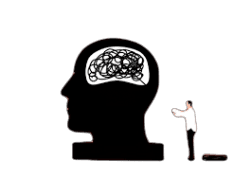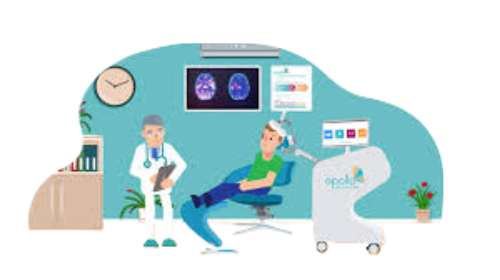Introduction: Unlocking the Power of the Unconscious Mind
Have you ever wondered why you react in certain ways, dream about strange things, or develop habits without even thinking about them? Much of what we do, feel, and think is not entirely under our conscious control. Beneath the surface of awareness lies the unconscious mind—a hidden world shaping behavior, emotions, and even physical health.
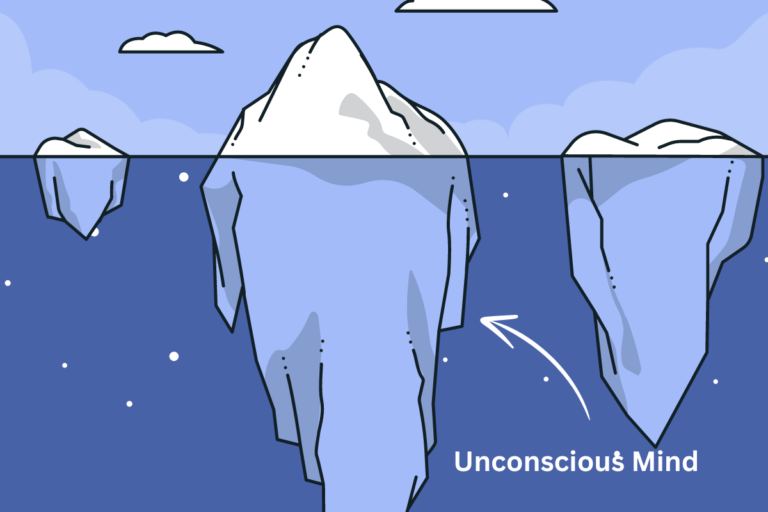
The unconscious has fascinated philosophers, psychologists, and scientists for centuries. From Sigmund Freud’s early theories to modern neuroscience, the study of unconscious processes reveals that much of human life is directed by forces outside our awareness. This article will dive deep into the unconscious mind, its role in health, Freud’s influential theories, differences from conscious thought, and practical ways to understand and work with this hidden aspect of the self.
What Is the Unconscious Mind?
The unconscious mind refers to mental processes that occur outside of conscious awareness. It is the storehouse of hidden thoughts, memories, impulses, and emotions that shape our behavior without us realizing it.
Unlike the conscious mind, which handles active awareness and decision-making, the unconscious works silently in the background. It influences:
- Automatic behaviors (like driving a familiar route without thinking).
- Emotional responses (such as fear triggered by a sound before you know why).
- Dreams and fantasies that emerge during sleep.
- Habits formed over time.
Philosophers like Plato hinted at hidden aspects of the mind long before psychology existed. However, it was Freud who popularized the concept in the late 19th century, making the unconscious a cornerstone of psychoanalysis.
How Your Unconscious Mind Affects Your Health
The unconscious mind is not just about hidden thoughts—it can directly influence physical and emotional health. This happens through the mind-body connection, where emotions and mental patterns impact the body’s functioning.
1. Stress and Physical Health
Unconscious fears or unresolved trauma can trigger stress responses. Chronic stress, even when we are not aware of its source, raises cortisol levels, leading to:
- Weakened immunity
- High blood pressure
- Digestive issues
2. Psychosomatic Illnesses
The unconscious can express distress through physical symptoms, such as headaches, stomach pain, or fatigue, even when medical tests show nothing physically wrong.
3. Habits and Lifestyle
Our unconscious shapes health-related habits—whether reaching for comfort food, avoiding exercise, or engaging in harmful behaviors like smoking. Many of these actions are driven by hidden emotional needs rather than rational choice.
4. Healing and Recovery
On the positive side, engaging the unconscious through therapies like hypnotherapy, meditation, and psychodynamic approaches can improve health outcomes, reduce stress, and foster emotional resilience.
What Is an Example of the Unconscious Mind?
The unconscious reveals itself in daily life in ways we often overlook.
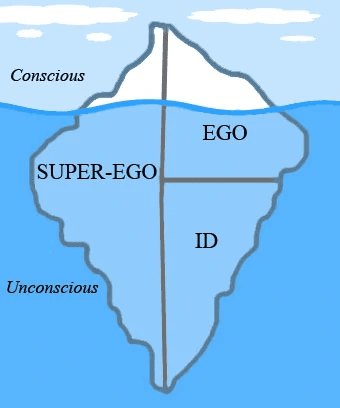
- Dreams: Symbolic stories that reflect hidden thoughts and emotions.
- Freudian Slips: Accidentally saying the wrong word, often revealing deeper feelings.
- Automatic Skills: Typing, walking, or playing an instrument without conscious effort.
- Emotional Reactions: Feeling anxious when meeting someone new without knowing why.
- Habits: Biting nails, procrastinating, or repeating patterns in relationships.
For instance, someone who had a difficult childhood may unconsciously choose partners resembling their parents, repeating emotional patterns without realizing it.
What Is Freud’s Theory of the Unconscious Mind?
Freud, the father of psychoanalysis, placed the unconscious at the heart of his psychological theory. He proposed that the mind is like an iceberg—only a small part (the conscious) is visible, while the majority lies hidden beneath the surface.
Freud’s Model of the Mind
- Id: Primitive desires and instincts (hunger, aggression, pleasure).
- Ego: The rational, conscious self that balances desires with reality.
- Superego: The moral conscience shaped by societal and parental rules.
The unconscious contains repressed desires, unresolved conflicts, and painful memories. Freud believed these hidden forces drive behavior and shape personality.
Defense Mechanisms
Freud also described how the unconscious uses defense mechanisms like repression, denial, and projection to protect us from anxiety. For example, someone who is angry might unconsciously project hostility onto others rather than admit their own anger.
Psychoanalysis and the Unconscious
Freud developed psychoanalysis to bring unconscious material into awareness through techniques such as:
- Free association (saying whatever comes to mind).
- Dream interpretation.
- Exploring transference in therapy.
What Is the Difference Between the Conscious Mind and the Unconscious Mind?
Understanding the differences helps us see how much influence the unconscious holds.
| Conscious Mind | Unconscious Mind |
|---|---|
| Aware of thoughts, feelings, and decisions | Hidden thoughts, memories, and instincts |
| Handles logic, reasoning, problem-solving | Governs habits, emotions, and instincts |
| Processes about 40 bits of information per second | Processes millions of bits per second |
| Works deliberately and slowly | Works automatically and quickly |
For example, when learning to ride a bike, the conscious mind focuses on balance and movement. Over time, the skill moves into the unconscious, allowing you to ride effortlessly.
What Is the Concept of Unconsciousness?
The term “unconsciousness” has two meanings—one psychological and one medical.
- Psychological Unconsciousness: Refers to hidden thoughts, memories, and desires that influence behavior. This is the focus in Freud’s psychoanalytic theory.
- Medical Unconsciousness: Refers to the state of being unaware or unresponsive, such as fainting, coma, or sleep. While different from the psychological sense, both highlight states outside conscious awareness.
The psychological concept is particularly important in therapy, as unresolved unconscious conflicts can influence mood, relationships, and behavior.
The Role of the Unconscious Mind in Daily Life
The unconscious is not just a theory—it plays a central role in everyday experiences.
1. Intuition and Gut Feelings
That “gut instinct” you feel often comes from unconscious pattern recognition.
2. Creativity
Artists, writers, and inventors frequently draw inspiration from unconscious processes, often revealed in dreams or sudden insights.
3. Relationships
Unconscious biases, attachment styles, and emotional triggers shape how we connect with others.
4. Learning and Memory
Much of learning involves storing knowledge unconsciously, such as speaking a language fluently without thinking about grammar rules.
Modern Psychology and the Unconscious Mind
While Freud laid the foundation, modern psychology has expanded the understanding of the unconscious.
- Carl Jung: Introduced the concept of the collective unconscious—a shared set of symbols and archetypes across humanity.
- Cognitive Psychology: Focuses on implicit memory, automatic processing, and biases.
- Neuroscience: Shows how unconscious brain activity influences decision-making before conscious awareness.
Studies reveal that the brain often makes choices milliseconds before we become consciously aware of them, highlighting the unconscious mind’s immense role.
Practical Ways to Work With Your Unconscious Mind
The unconscious is not beyond our reach. With practice, we can learn to recognize and work with it.
1. Mindfulness and Meditation
Help increase awareness of thoughts and emotions, making unconscious patterns more visible.
2. Therapy
Psychodynamic therapy, CBT, and hypnotherapy can uncover hidden conflicts.
3. Journaling and Dream Work
Writing down dreams or daily reflections helps surface unconscious material.
4. Positive Affirmations
Repeated positive statements influence unconscious beliefs and habits.
5. Creative Expression
Art, music, and writing tap into unconscious ideas and emotions.
Conclusion: Embracing the Power of the Unconscious
The unconscious mind is not a mysterious force to be feared, but a powerful ally shaping health, habits, emotions, and creativity. From Freud’s early theories to modern neuroscience, the unconscious continues to reveal its influence on human life. By exploring and working with this hidden part of ourselves, we can gain self-awareness, overcome challenges, and unlock our full potential.
The next time you have a dream, a gut feeling, or a sudden creative spark, remember—it’s your unconscious mind at work, guiding you in ways you may not fully realize.

